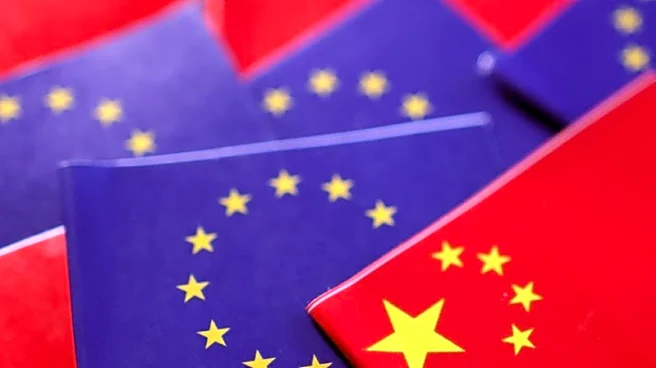What's Happening?
The HM Revenue and Customs (HMRC) has issued a warning to millions of Self Assessment customers about scams impersonating the agency. These scams often involve fake tax refund offers or urgent payment demands, aiming to steal personal and banking information. Over the past year, more than 170,000 scam referrals were reported to HMRC, with over 47,000 involving fake tax refund claims. Despite a 12% reduction in scam reports compared to the previous year, the threat remains significant. HMRC advises customers to verify the authenticity of any communication claiming to be from the agency, especially those requesting personal details or offering tax rebates. The agency emphasizes that it will never ask for personal or financial information via text or email, nor will it inform customers about refunds through these channels.
Why It's Important?
This warning is critical as it highlights the ongoing threat of scams targeting taxpayers, particularly during the Self Assessment period. Scammers exploit the tax filing season to deceive individuals into sharing sensitive information, potentially leading to financial loss and identity theft. The reduction in scam reports suggests some progress in public awareness, but the persistence of these scams underscores the need for continued vigilance. By filing tax returns early, customers can better protect themselves from scam attempts closer to the January 31, 2026 deadline. The HMRC's guidance aims to safeguard taxpayers and maintain trust in the tax system.
What's Next?
HMRC encourages individuals to report phishing attempts and suspicious communications to the agency. Customers are advised to use their HMRC online account or the free HMRC app for secure tax refund claims. The agency's ongoing efforts to educate the public about scams and provide clear guidance are expected to continue, aiming to further reduce the incidence of tax-related fraud. As the tax filing deadline approaches, HMRC will likely intensify its awareness campaigns to protect taxpayers from potential scams.











